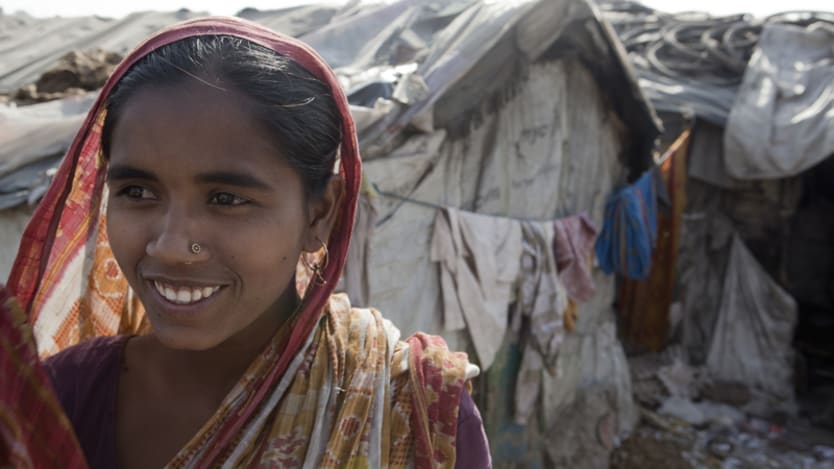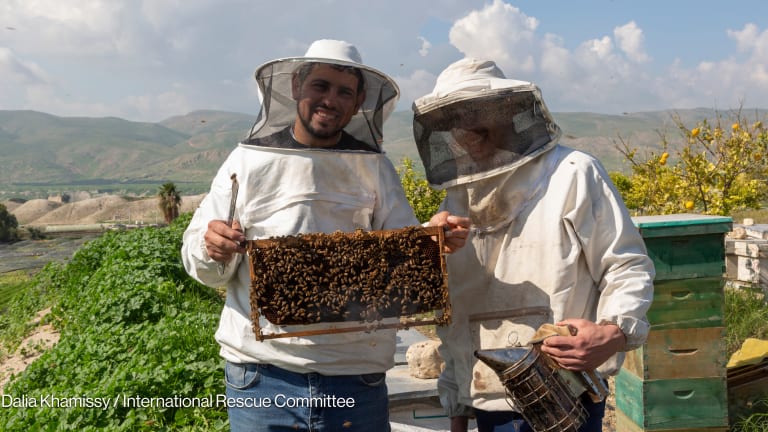
Impressed with their success in Kenya, the donor installed state-of-the-art hand pumps along Somalia’s Jubba River, confident that community members would also benefit from the highly effective water delivery system.
A year later, the water pumps sat broken and unused.
When my colleagues and I visited the community to ask why folks weren’t using the pumps, they told us that a regular (earthen) catchment system to capture water during the rainy season or a hand-dug well along the riverside would have better jibed with their way of life. That’s what they would have preferred. But no one talked to them before installing the hand pumps.
It's a scenario I've witnessed time and again in global development, whether the goal is to improve reproductive health outcomes for women or rebuild communities in the wake of a natural disaster or conflict. For too long now, donors and development practitioners have taken a top-down approach to addressing complex global challenges — or even the seemingly simple ones, like providing water during the dry season. We predetermine the solutions. We package them into artificial, often unrealistic time frames. And we do it all alongside of rigid funding structures.
But how often do we consult the people we strive to help before we design an intervention or determine the outcomes meant to improve their lives?
This month, as world leaders endorse a new, ambitious set of global goals that span from cleaning up the planet's oceans to ending all forms of poverty, it is imperative that donors, governments, development practitioners and the private sector begin to reimagine how we all can work together to address the increasingly difficult — and interrelated — challenges faced by people around the world.
To ensure that our investments are truly transformational as we embark on this new global vision, we must be bold. We must be bold and begin to fundamentally shift our traditional way of working by taking more integrated approaches to tackling global problems. Critical to this is being more deeply engaged with communities to understand the contexts in which they live, what they need, what their ideas are, and the unseen influences that can diminish even the very best interventions. In the post-2015 era, our development approaches need to be as interconnected as the challenges families around the globe navigate each day.
By better engaging local communities in a purposeful manner, FHI 360 believes that development efforts will naturally become more cross cutting and integrated. When we take more time to talk with people and through them, identify the problems — as well as the creative ways they’re already addressing them — the intertwined challenges individuals face will become apparent. And in the end, development solutions are likely to be more authentic and enduring.
Most international development professionals and funders, however, continue to operate in a fragmented fashion, often duplicating efforts. The current infrastructure also inhibits growth, learning and responsiveness during a project. And many times, we fail to have an ongoing conversation with the very people we aim to empower.
The sustainable development goals provide us with a profound opportunity to be more intentional and collaborative — across sectors and disciplines and throughout the life of an intervention, from its design to its evaluation. These goals are absolutely ripe for integration. Indeed, David LeBlanc at the U.N. Department of Economic and Social Affairs suggested that the 17 goals and 169 targets in the SDGs are like a network, each reliant on the other, therefore encouraging more “cross-sector, integrated work.”
The integrated development approach, with its ability to meet multiple community and individual needs — including the many stressors of poverty — has the potential to be a more effective model for addressing human development challenges. We envision that the most dynamic frontlines of social change over the next 15 years will not happen within individual sectors, but at their intersections. Such collaborative efforts must be anchored by evidence. And for solutions to be effective as we move forward, they have to begin with, and take root in, the communities we serve.
To get us there by 2030, FHI 360 believes that development practitioners must first work towards improving the evidence that illustrates the impact of integrated development approaches and apply research-based findings to decision processes at all levels. We also have to overhaul the global development architecture so that it supports the funding, design, delivery and evaluation of integrated efforts where they are most effective. And we must create an enabling environment for development efforts to sufficiently respond to the multifaceted nature of people's lives.
The third point is vital — especially for the more than 1.3 billion people who still endure extreme poverty. They include the mother living with HIV in Uganda who is struggling to keep her kids healthy and put food on the table. Or the young boy in Cambodia hungry for a chance to go to school. Or that farmer near the Jubba River in Somalia, desperate for water to keep his crops thriving during dry season.
As we aim to leave no one behind in the post-2015 era, let’s focus on better meeting people where they are in their lives. By this I mean leading with their desires and their vision for their family’s future and including them throughout the design process. And moving forward, it means that before every decision made around a programmatic intervention we question ourselves: "Does this make sense from the community’s perspective?"
How can an intentional, integrated approach to the design, delivery and evaluation of programs make an enduring difference in people’s lives? Devex, in partnership with FHI 360, aims to advance the global conversation on the promise offered by integrated development solutions through #IntegratedDev. Visit the campaign site and join the conversation using #IntegratedDev.








